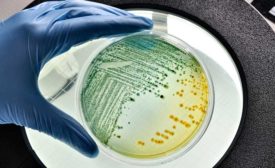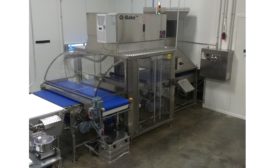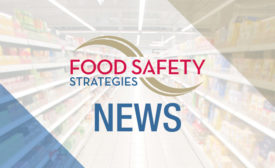Home » Keywords: » food safety
Items Tagged with 'food safety'
ARTICLES
Due to the well-known risks of working with pathogens in an in-plant food laboratory, there has been a dramatic shift to outsourcing for pathogen samples
Read More
Wisconsin dairy groups launch Dairy Food Safety Alliance
The first meeting is set for Oct. 8, 2018.
August 17, 2018
EVENTS
Webinar
8/8/23 to 8/8/24
Contact: Vania Halabou
Five Simple Strategies for Improving Hand Hygiene Compliance for Food Safety
Webinar
9/26/23 to 9/26/24
Contact: Vania Halabou
Foreign Object Control: Best Practices in Food Processing and Foodservice
Webinar
12/12/23 to 12/12/24
Contact: Vania Halabou
Safely Serving All: Allergen Control and Response in Retail Foodservice
Webinar
1/25/24 to 1/25/25
Contact: Vania Halabou
Finding the Balance Between Food Safety and Sustainability
Webinar
1/30/24 to 1/30/25
Contact: Vania Halabou
AI in Food Safety: Current Applications and Future Possibilities
Webinar
2/22/24 to 2/22/25
Contact: Vania Halabou
Applied Root Cause Analysis: Using Your Results to Effectively Manage Risk
Webinar
3/28/24 to 3/28/25
Contact: Vania Halabou
Controlling Salmonella and Cronobacter in Dry Processing Environments by Managing System Breaches
Webinar
4/17/24 to 4/17/25
Contact: Vania Halabou
Sustainable Wet Sanitation for Equipment Protection: Finding the Right Balance
Webinar
4/25/24 to 4/25/25
Contact: Vania Halabou
How to Get a Clean Break: Decontaminate Your Facility
Webinar
4/30/24 to 4/30/25
Contact: Vania Halabou
Ahead of the Curve: Managing Global Pesticide Maximum Residue Levels
Never miss the latest news and trends driving the food safety industry
eNewsletter | Website | eMagazine
JOIN TODAY!Copyright ©2024. All Rights Reserved BNP Media.
Design, CMS, Hosting & Web Development :: ePublishing











